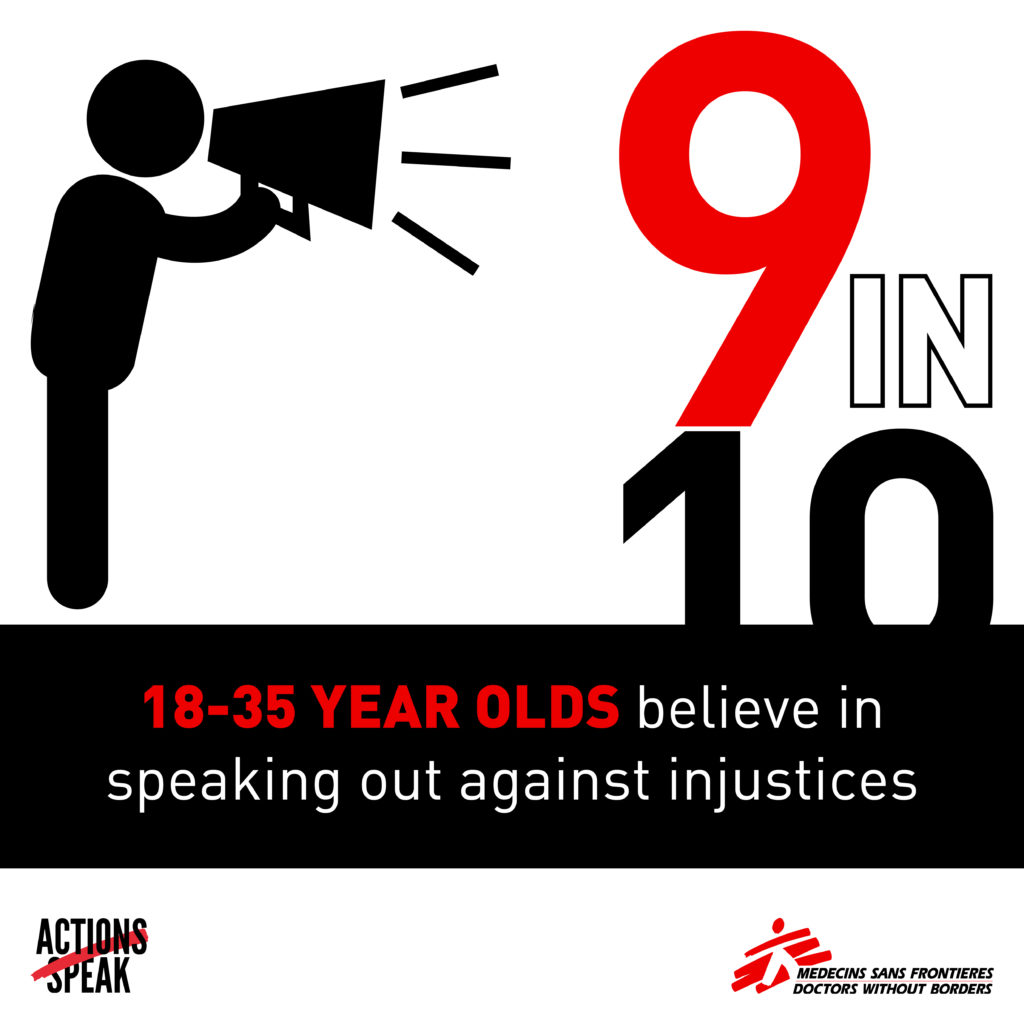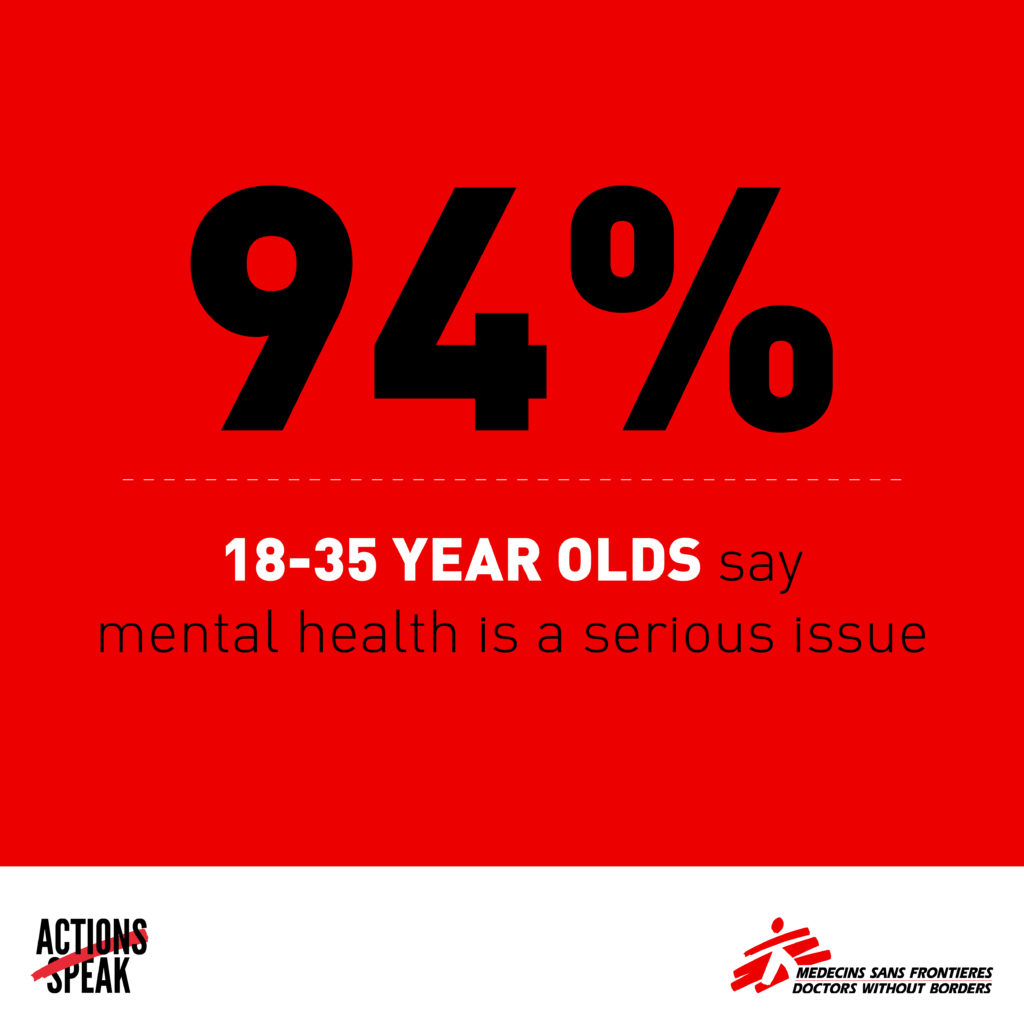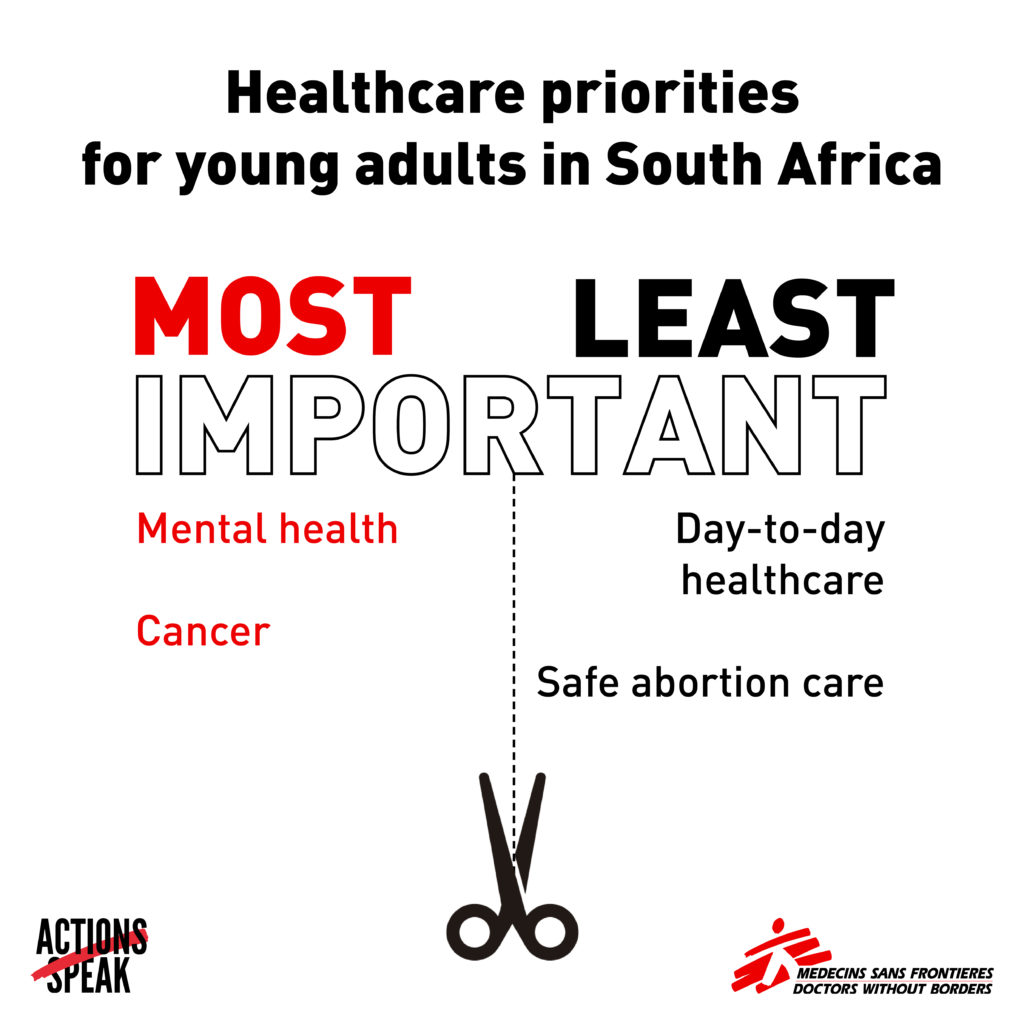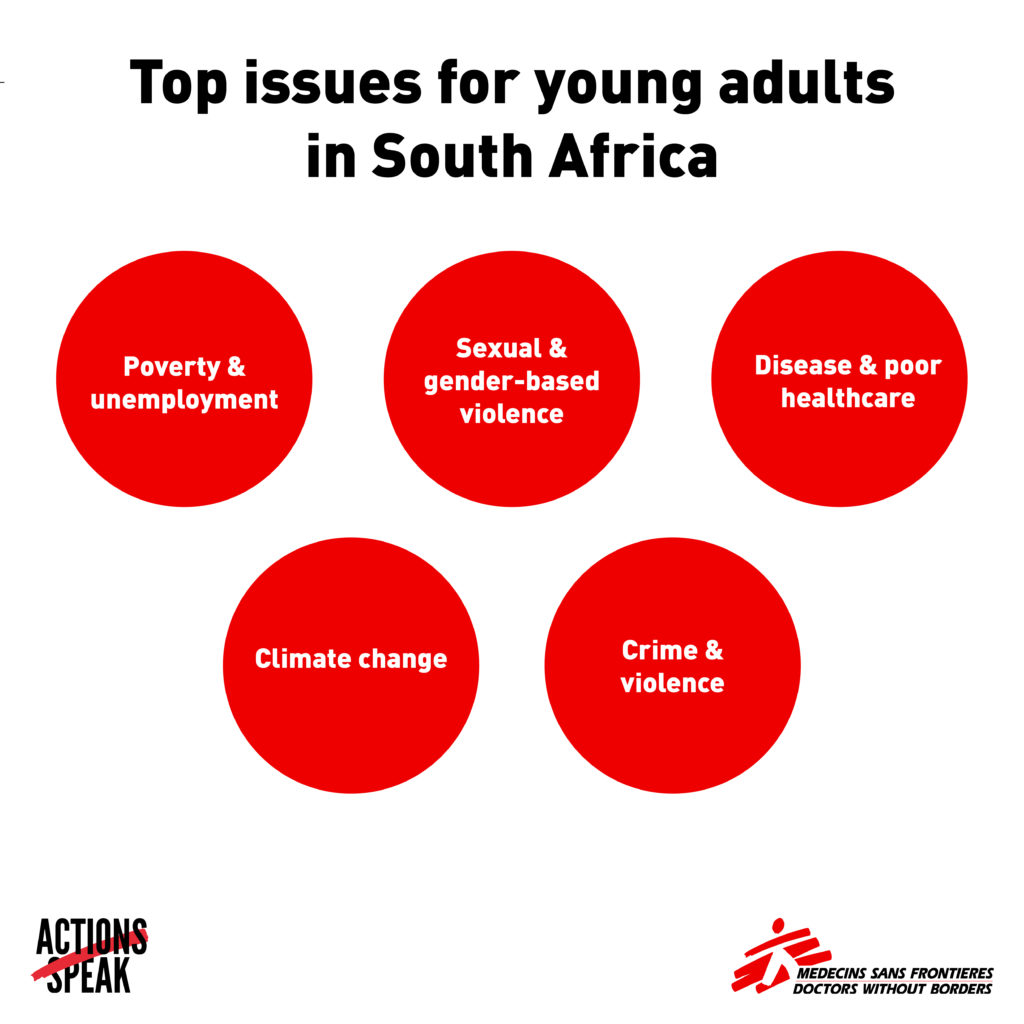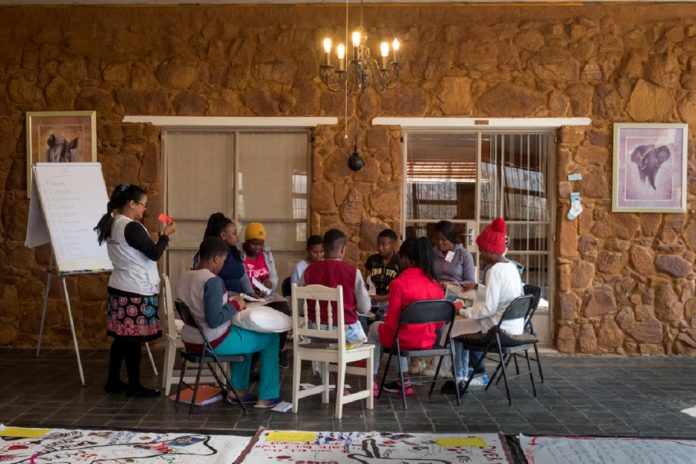
Young people – especially survivors of gender-based violence – actually just want better access to healthcare. “Apathetic and uninterested young people” seems to be a common description of young people but a new survey from Doctors Without Borders (MSF Southern Africa) shows otherwise.
In the run-up to the 16 Days of Activism campaign, MSF conducted a survey of 1000 young people in South Africa between the ages of 18 and 35. The young people were surveyed on several issues with the main focus being on healthcare. From the survey, poverty and unemployment was identified as the biggest crisis facing society. Gender-based violence (GBV) was identified as the biggest concern for young people.
How was the survey conducted?
Using social media platforms such as Facebook and Instagram, MSF sourced respondents. This approach was used because it was found to be the most effective way of communicating with the chosen demographic. It reached the largest number of people compared to other methods. The actual survey consisted of 31 questions developed by MSF Southern Africa and the Meraki Research, a market research company based in Johannesburg, South Africa.
The data set was made up of 43% of people between 18 and 25 years old and 57% between 26 and 35 years old. In terms of the gender make-up 66% of the respondents identified as female, 34% male. With regards to race 66% of the respondents identified as black, 16% white, 10% coloured and 5% Indian/Asian.
What did the survey find out?
GBV was not only identified as one of the main healthcare issues but also as “one of the top humanitarian crises facing society.”
One of the female respondents from KwaZulu Natal said: “Treatment first! Because if such an act is committed against you, your personal care should be more important than anything else. I mean, police procedure can take time and you should be comfortable speaking to the police and I think it is more important to be actually be treated for your injuries to be treated before.”
Crucially, most respondents said they would encourage their friends to report sexual violence.
“I think it’s good to report to police. However, I think many of us actually keep quiet when such things happen. Often victims go to the police and they seem like they never get help. I think another resort is go to clinics [or] to go to NGOs that are there to support victims,” said one of the respondents.
Response from MSF
Commenting on the survey, Guilhem Molinie, General Director of MSF Southern Africa said: “Young people in South Africa are ready to take a stand. They have a key role to play in reframing our society’s understanding of sexual violence to put the medical and psychological needs of survivors at the centre of South Africa’s response to SGBV. We are encouraged that they are ready to stand with us.”

